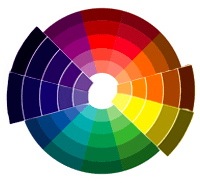Complement
From Nordan Symposia
Jump to navigationJump to searchThe printable version is no longer supported and may have rendering errors. Please update your browser bookmarks and please use the default browser print function instead.
Etymology
Middle English, from Latin complementum, from complēre to fill up, complete, from com- + plēre to fill — more at full
- Date: 14th century
Definitions
- 1 a : something that fills up, completes, or makes perfect
- b : the quantity, number, or assortment required to make a thing complete <the usual complement of eyes and ears — Francis Parkman>; especially : the whole force or personnel of a ship
- c : one of two mutually completing parts : counterpart
- b : the set of all elements that do not belong to a given set and are contained in a particular mathematical set containing the given set
- c : a number that when added to another number of the same sign yields zero if the significant digit farthest to the left is discarded —used especially in assembly language programming
- 4 : an added word or expression by which a predication is made complete (as president in “they elected him president” and beautiful in “he thought her beautiful”)
- 5 : the thermolabile group of proteins in normal blood serum and plasma that in combination with antibodies causes the destruction especially of particulate antigens (as bacteria and foreign blood corpuscles)
